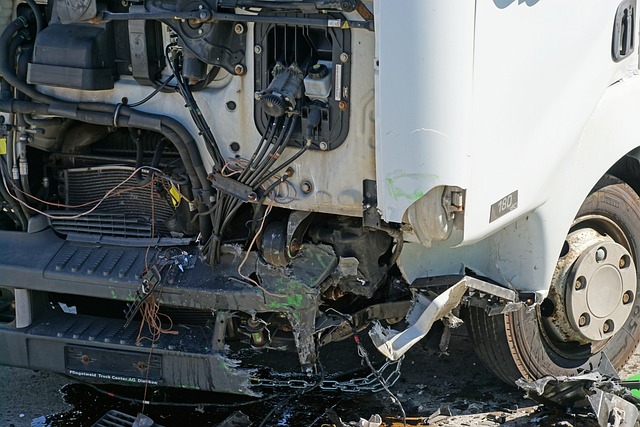General Liability insurance is a crucial safety net for small businesses, protecting them from significant financial losses due to accidents, injuries, or property damage. It covers legal fees, medical expenses, and damages related to claims, with coverage varying based on industry, activities, and location. Proactive risk management involves regular assessments, implementing safety protocols, adequate insurance, and detailed record-keeping. Effective General Liability management includes understanding the claim process, staying informed about laws, and consulting professionals for tailored coverage. By minimizing exposure to liabilities through these measures, small businesses can focus on growth while safeguarding their future.
Small businesses face a variety of risks daily, from slip-and-fall accidents on premises to product liability claims. Understanding General Liability insurance is crucial for mitigating these risks and safeguarding your business. This comprehensive guide delves into all aspects of General Liability, including common threats, policy components, selection tips, and the claim process. By the end, you’ll be equipped with the knowledge needed to protect your business from unforeseen liabilities.
Understanding General Liability: A Comprehensive Overview

General Liability, a cornerstone of risk management for small businesses, refers to the legal responsibility for any harm or loss caused to third parties. It’s not just about paying damages; it encompasses a wide range of costs, including legal fees and medical expenses arising from accidents or injuries on your business premises or due to products you sell. Understanding General Liability involves recognizing potential risks and implementing proactive measures to mitigate them. This includes maintaining a safe environment, ensuring product quality, and carrying adequate insurance coverage.
A comprehensive overview reveals that General Liability is not one-size-fits-all. It varies based on industry, business activities, and location. Small businesses need to conduct thorough risk assessments tailored to their unique operations. By identifying potential hazards and adopting best practices, such as regular maintenance, employee training, and clear safety protocols, businesses can significantly reduce the likelihood of General Liability claims.
Why Small Businesses Need General Liability Insurance

Small businesses, despite their size and often lean operations, face a variety of risks that can lead to significant financial loss. General Liability Insurance is an essential component in mitigating these risks. This type of insurance protects business owners from claims related to bodily injury or property damage they may cause to others, as well as covering legal fees associated with defense against such claims.
Without adequate coverage, a single incident could result in substantial payouts and irreparable reputational damage. For small businesses, where every dollar counts, General Liability Insurance provides a safety net that allows them to focus on growth and success rather than potential liabilities. It’s not just about compliance; it’s a proactive step to safeguard the future of your business against unforeseen circumstances.
Common Risks and Claims Against Small Businesses

Small businesses face a variety of risks that can lead to general liability claims. Common scenarios include slip-and-fall accidents on premises, product defects that cause harm to customers, and incidents involving employees or third parties. For instance, a coffee shop might be liable if a customer slips on spilled coffee, or a retailer could face a claim if a product they sell malfunctions and causes injury. These risks underscore the importance of general liability coverage for small businesses, which protects against potential financial losses resulting from such incidents.
Additionally, businesses may face claims related to negligence, property damage, personal and advertising injuries, and more. Negligence claims arise when a business fails to exercise reasonable care, leading to harm or loss. Property damage suits involve allegations of destruction or deterioration of someone’s property due to the business’s actions. Personal and advertising injuries cover situations like defamation, false advertising, or injuries sustained while on business premises, often stemming from inadequate warning signs or unsafe conditions. Understanding these common risks is vital for small businesses aiming to mitigate their exposure through appropriate insurance coverage.
Components of a General Liability Policy

A General Liability policy is a crucial component for any small business, offering protection against potential claims and lawsuits. This type of insurance covers various risks associated with your operations, providing financial security in case of accidents, injuries, or property damage that may occur on your premises or during business activities. The policy typically includes three key elements:
First, it offers coverage for medical expenses and damages incurred by third parties who suffer injuries or illnesses on your business property. This is essential to protect against costly lawsuits and medical bills. Second, general liability insurance also covers property damage claims, ensuring that your business is compensated for any accidental harm caused to others’ belongings. Lastly, it provides protection against personal and advertising injury claims, which may arise from slander, libel, or other forms of negative publicity, helping to safeguard your business’s reputation and financial stability.
How to Choose the Right General Liability Coverage

Selecting the appropriate General Liability coverage for your small business is a crucial step in risk management. Start by evaluating your business activities and potential risks. Consider the types of injuries or damages your business may be held liable for, such as property damage, personal injury, or medical expenses. Understand that different industries have varying levels of exposure; for instance, a construction company will require more comprehensive coverage than a retail store.
Next, analyze your existing policies and coverage limits. Review past claims and lawsuits to identify patterns and potential gaps in your protection. Consult with insurance professionals who can provide tailored advice based on your business specifics. Remember, the right General Liability coverage should offer adequate protection against realistic risks while aligning with your business’s unique needs.
The Claim Process: What to Expect and How to Navigate It

When a claim is made against your small business for general liability, understanding the process is key to managing it effectively. The initial step involves receiving formal notification of the claim, which may be in the form of a lawsuit or demand letter. This should prompt you to gather all relevant information and documentation pertaining to the incident.
Navigating the claim requires clear communication with your insurance provider as they will guide you through the next steps, which often include providing a detailed response to the claim, gathering evidence to support your case, and potentially negotiating a settlement or heading to court. It’s crucial to keep thorough records throughout this process, ensuring all communications and documents are well-organized for easy reference.
Case Studies: Real-World Examples of General Liability Claims

General Liability claims can arise from a variety of situations, and understanding real-world examples can help small businesses prepare and mitigate risks. For instance, consider a local café that fails to clean up a spilled hot beverage promptly. A patron slips and falls, suffering an injury. The customer files a lawsuit, citing negligence on the part of the café, which could result in significant financial damages. This scenario highlights the importance of prompt response to potential hazards, as outlined in general liability insurance policies.
Another case involves a contractor who promises to complete renovation work within a specific timeframe but fails to meet this promise, causing substantial delay and disruption to the client’s business operations. The client sues for breach of contract and related losses. This illustrates how business operations and customer expectations can be significantly impacted by general liability issues, emphasizing the need for clear communication and timely project management.
Mitigating Risks: Strategies for Small Business Owners

Small business owners face a variety of risks, but proactive strategies can help mitigate general liability concerns. One key approach is implementing robust safety measures to prevent accidents and injuries on premises, such as regular maintenance, clear signage, and well-designed layouts. Additionally, staying informed about relevant laws and regulations, carrying adequate insurance coverage, and establishing clear policies and procedures can significantly reduce potential liabilities.
Documenting processes, training employees effectively, and fostering open communication encourage a culture of safety and accountability. Keeping detailed records of incidents, near misses, and safety protocols not only aids in identifying areas for improvement but also serves as evidence of due diligence should a claim arise. By adopting these strategies, small business owners can proactively manage risks associated with general liability, ensuring a more secure operational environment.
Legal Implications and Best Practices for Liability Management

Small businesses, despite their size, face significant legal implications in managing general liability. Negligence claims, product defects, and personal injuries on premises can lead to substantial financial burdens and damage to reputation. To mitigate these risks, best practices include regular risk assessments, implementing robust safety protocols, and ensuring proper insurance coverage. Keeping detailed records of all incidents, maintaining a clean and safe work environment, and training employees on liability prevention are essential steps.
Additionally, staying informed about local laws and regulations pertaining to business operations is crucial. Regular reviews of liability policies and updates to risk management strategies based on industry trends can significantly enhance a small business’s defense against potential claims. Engaging legal counsel specializing in general liability can provide tailored guidance, ensuring the business operates within legal parameters and minimizing exposure to costly lawsuits.
